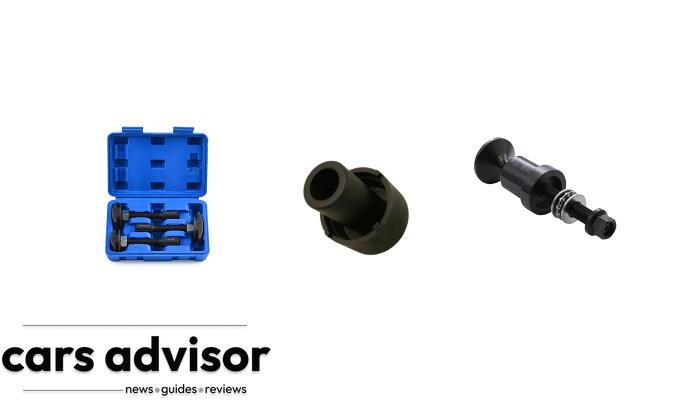“What’s a fair monthly car payment?” It’s a question that many car enthusiasts like myself get asked all the time. While there’s no one-size-fits-all answer, financial experts suggest that your car payment should not exceed 10% of your take-home pay. But that’s not all you need to consider. Here are some key points to help you determine what a fair monthly car payment looks like:
Consider your budget: Before making any big purchases, take a good look at your finances and determine what you can realistically afford. Make a list of all your monthly expenses and income to assess how much you can spend on a car payment each month.
Calculate total car expenses: It’s not just the car payment that you need to consider. You’ll also need to factor in gas, insurance, maintenance, and potential repairs. Experts suggest that these total expenses should not exceed 15-20% of your income.
Shop around: Don’t settle for the first deal you find. Shop around and compare prices and financing options to ensure you’re getting the best deal possible.
Consider a used car: A used car can provide a more affordable monthly payment. Just be sure to get a thorough inspection before making the purchase.
Factor in a down payment: Making a larger down payment can help lower your monthly car payment. Consider saving up before making a purchase or trading in your current vehicle for a down payment.
Determining a fair monthly car payment can vary based on individual circumstances. By following these key points, you can make an informed decision that fits your budget and needs. So, before you hit the dealership, make sure you’ve done your homework and know what you can afford.
As a car blogger and someone who has had to budget for car payments in the past, I understand the importance of finding a fair monthly payment. Financial experts recommend not spending more than 10% of your take-home pay on a car loan, and not more than 15% or 20% of your total car expenses including gas, maintenance, insurance and the cost of the car. In this article, I will explore how to determine your take-home pay, calculate the 10% rule for car loan payments, consider total car expenses for budgeting purposes, balance car loan payments with other monthly bills, find loans with favorable terms and interest rates, negotiate the price of the car to lower monthly payments, and provide tips for managing car expenses to stay within budget.
Determining Your Take-Home Pay
To determine your take-home pay, start by looking at your gross salary, which is the amount of pay you receive before taxes and benefits are deducted. Deduct mandatory taxes like Social Security, Medicare and federal taxes, and any contributions you make to your company’s retirement plan or employee benefits. Divide the amount that remains by the number of times you get paid in a year to get your take-home pay. If you have a part-time job, erratic income, or receive bonuses or commissions, estimate your income on an average monthly basis.
Calculating the 10% Rule for Car Loan Payments
Financial experts advise not spending more than 10% of your take-home pay on your car loan payment. For example, if your take-home pay is $3,000 per month, you should not spend more than $300 per month on your car loan payment. To ensure that you stick to this limit, consider options like buying a used car, choosing a shorter term loan, or selecting a car with a lower purchase price.
Considering Total Car Expenses for Budgeting
When budgeting for car payments, it’s crucial to consider your total car expenses, which include gas, maintenance and insurance costs on top of the car loan payment. Financial experts suggest that total car expenses should be no more than 15% to 20% of your total monthly income. To calculate total car expenses, add up gas, insurance, and maintenance costs on top of the car loan payment. Consider investing in a fuel-efficient car, choosing a car with lower insurance rates, and following your car’s recommended maintenance schedule to cut down expenses.
Balancing Car Loan Payments and Other Monthly Bills
To ensure that you can comfortably afford your car loan payment, it’s important to balance it with your other monthly bills. Track your monthly expenses and compare them to your monthly income to create a budget that allows you to make your car payment without sacrificing other bills. You may want to consider negotiating rates on other bills, like cable or internet, and finding ways to cut back on discretionary spending to free up cash for car payments.
Finding a Loan with Favorable Terms and Interest Rates
To find a loan with favorable terms and interest rates, shop around at multiple lending institutions like banks, credit unions, and online lenders. Consider the Annual Percentage Rate (APR) when shopping around, as it factors in both the interest rate and fees associated with the loan. If you have a strong credit score, you may qualify for a lower interest rate, which can help lower your monthly payment. Additionally, consider refinancing your loan if interest rates drop or your credit score improves over time.
Negotiating the Price of the Car to Lower Monthly Payments
Negotiating the price of the car can help lower your monthly payment by reducing the amount of the loan needed. Research the fair market value of the car you are interested in and use it as a bargaining tool when negotiating with the dealership. Shop around at several dealerships to find the best deal and consider buying a car towards the end of the month or end of the year, when dealerships may be more willing to negotiate.
Tips for Managing Car Expenses to Stay Within Budget
To manage car expenses and stay within budget, use the following tips:
- Maintain your car regularly to avoid costly repairs down the road.
- Consider buying a car with a warranty to cover unexpected repairs.
- Drive sensibly to maximize gas mileage and avoid costly tickets or accidents.
- Shop around for cheaper insurance rates and bundle services to save money.
- Carpool or use public transportation to cut down on gas and maintenance costs.
- Plan your car trips efficiently to minimize driving time and gas expenses.
- Use rewards programs or gas station credit cards to earn discounts on gas purchases.
Overall, finding a fair monthly car payment requires careful budgeting and planning. To stay within budget, it’s important to consider not only the car loan payment, but also total car expenses, and balance car payments with other monthly bills. Shop around for favorable loan terms and interest rates, and negotiate the price of the car to lower monthly payments. By managing car expenses efficiently and following these tips, you can afford a car that meets your needs without sacrificing your financial stability.













